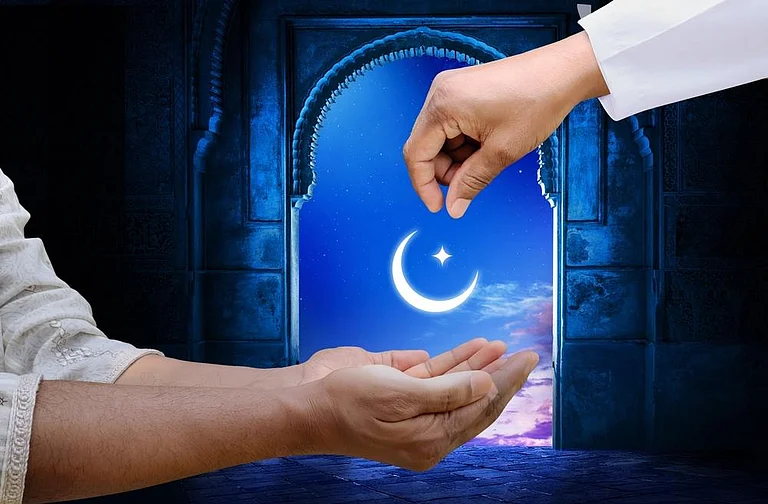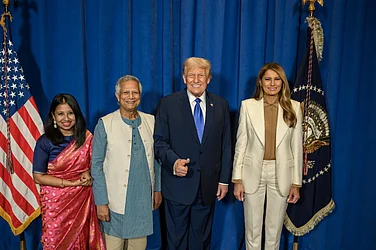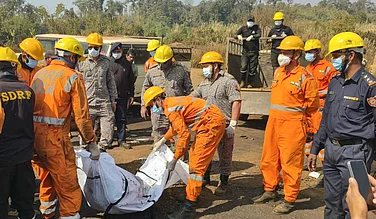Amid the ongoing India-Canada diplomatic row, Canada's Leader of the Opposition Pierre Poilievre has said that Canadian Prime Minister Justin Trudeau has become a "laughing stock" in India and while it's important have a professional relationship with India.
Trudeau has plunged the India-Canada relations to a new low by accusing India of "potentially" having a role in the murder of Khalistani terrorist Hardeep Singh Nijjar in June in Canada's British Columbia province. Since then, the two countries have exchanged a series of diplomatic blows.
The Conservative Party Leader Poilievre said that while it is important to hold countries accountable, it is also important to have a professional relationship with India. He also condemned the acts of vandalism at Hindu temples in Canada and threats made against the members of the Hindu community.
In an interview with Nepali outlet Namaste Radio Toronto, Poilievre said his Conservatives "share the Hindu values of faith, family, and freedom" and that he stands against hate crimes against religious places like temples.
For several months, a number of Hindu temples have been vandalised in Canada. After Trudeau made the accusation against India last month in the Parliament, another Khalistani terrorist Gurpatwant Singh Pannun made open threats against the Hindus in Canada and asked them to leave the country. In the interview, Poilievre said that he condemns "all of the attacks on Hindu mandirs and threats against Hindu leaders" and that "aggression shown to Indian diplomats is completely unacceptable".
What did Canadian Conservative leader Pierre Poilievre say?
Pierre Poilievre, the Leader of the Opposition and the Conservative Party Leader, said that Canadian Prime Minister Justin Trudeau has become a "laughing stock" in India because of his statements.
Poilievre said that while it is important to bring accountability into the picture, it is also important to have a professional relationship with India.
He told Radio Namaste Toronto, "He [Trudeau] has blown up our relations abroad. He is so incompetent and unprofessional that now we are now in major disputes with all the major powers in the world and that includes India. We need a professional relationship with the Indian government. India is the largest democracy on Earth it's fine to have our disagreements and hold each-other accountable but we need to have a professional relationship."
Poilievre further said, "After eight years of Trudeau, our reputation is in tatters. Beijing is interfering in our country and opening police stations to abuse our people. Justin Trudeau is considered a laughing stock in India, the world's biggest democracy."
As for the vandalism of Hindu temples, Poilievre said such actions should be met with criminal charges and it is time to bring a security programme to safeguard all places of worship and people associated with such places.
Earlier, Poilievre had said that Trudeau needs to come clean on what evidence Canada has in the matter. The Canadians have claimed that they have human and technical evidence to back their allegations, but none of that has been shared so far. Moreover, reports have highlighted that the authorities botched the investigation of Nijjar's killing where people who could have seen the suspects were not interviewed and the getaway vehicle was never found.
Poilievre had said that the government had shared their assessment with him and added that "if these allegations are true, they represent an outrageous affront to Canada's sovereignty". He also said he was not told anything privately that Trudeau had not shared publicly and was not provided any evidence.
"The prime minister needs to come clean with all the facts. We need to know all the evidence possible so that Canadians can make judgments on that...The prime minister hasn’t provided any facts. He provided a statement and I want to emphasize that he didn’t tell me any more in private (than) he told Canadians in public, so we want to see more information," said Poilievre, as per National Post.
Poilievre also said there would be “real” risk if Trudeau refuses to provide more information or if the allegations turn out to be inaccurate, according to The Post.
Justin Trudeau and India-Canada relations
While India-Canada relations have been tense for many years over Khalistani elements finding a safe haven in the country, Canadian Prime Minister Justin Trudeau plunged the relations to a new last month when he alleged that there were "credible allegations of a potential link" of the Indian government's agents with the killing of Hardeep Singh Nijjar in Canada's British Columbia province. India has forcefully rejected the claim.
Nijjar was shot dead in June outside a gurdwara. He was a designated terrorist associated with the Khalistan movement. He was the chief of the Khalistan Tiger Force (KTF), also designated terrorist organisation.
The Khalistan movement refers to the movement to carve out a separate nation for Sikhs out of India. For years, the movement waged a bloody insurgency in India that only ebbed in the 1990s. While the insurgency ebbed in India, the movement found pockets of influence abroad, particularly in Canada where a large number of Khalistani terrorist leaders and organised crime syndicates are based that are engaged in anti-India activities.
Such tensions have only increased ever since Trudeau became the Prime Minister of Canada as Khalistani forces have found newfound tolerance from him, his allies, and his government. Over the years, Indian missions in Canada has been repeatedly subjected to violence, open threats of deaths are made against Indian diplomats, and Hindu temples are vandalised, but the Trudeau administration has done little to nothing to address these concerns.
After Trudeau accused India of being behind Nijjar's death, his government outed a senior Indian diplomat posted in Canada as the station chief of Indian intelligence agency and expelled him from the country. In a tit for tat response, India also expelled a senior Canadian diplomat posted in India, who has been identified as Olivier Sylvester, the station chief of Canadian intelligence agency in India. Moreover, India suspended visa services for all Canadians and expelled 41 Canadian diplomats from the country.
The India-Canada tensions were also visible during the G20 Summit last month when Trudeau was largely snubbed by India. He had a tense meeting with Prime Minister Narendra Modi. In a particularly harsh readout, the Prime Minister's Office (PMO) said that Modi "conveyed our strong concerns about continuing anti-India activities of extremist elements in Canada".
"They are promoting secessionism and inciting violence against Indian diplomats, damaging diplomatic premises, and threatening the Indian community in Canada and their places of worship. The nexus of such forces with organized crime, drug syndicates and human trafficking should be a concern for Canada as well. It is essential for the two countries to cooperate in dealing with such threats," said the Indian readout further.
Following Trudeau's claim of Indian role in Khalistani terrorist Nijjar's killing, India issued an advisory warning of "politically-condoned" anti-India activities in Canada. The phrase "politically-condoned" reflects the support that the Khalistan movement and anti-India elements in Canada receive from Trudeau, his party and allies, and his government.


























